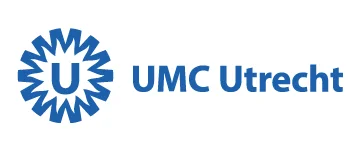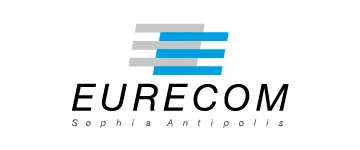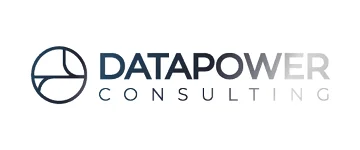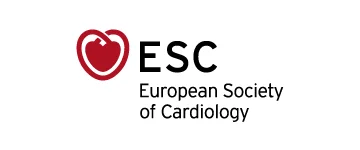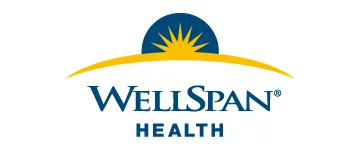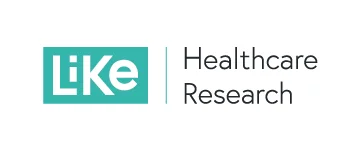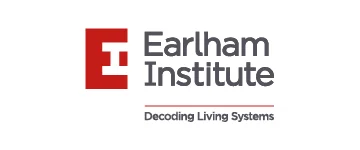Partners
University Medical Center Utrecht is one of the largest hospitals in The Netherlands, comprising of an adult facility and a specialized children’s hospital. It is the academic teaching hospital affiliated with Utrecht University in Utrecht, the Netherlands. Core business of UMC Utrecht is to provide healthcare for which specialized knowledge is required, to provide leading research and to offer excellent education to students and healthcare providers. UMC Utrecht ranks among the best European academic hospitals and has a strong track record in both pre- and clinical research. The Circulatory Health Research Center of the UMC Utrecht aims to (inter)nationally reduce the burden of cardiovascular disease, thereby focussing on improving the personalized prediction, prognosis, prevention and treatment of cardiovascular disease. In NextGen, the CHRC’s departments of (experimental) cardiology, clinical genetics, medical ethics and the central diagnostic laboratory team up to provide the efforts needed for a successful project.
Queen Mary University of London (QMUL) participates in NextGen through our William Harvey Research Institute (WHRI), an internationally acknowledged centre of excellence in the field of cardiovascular research and therapeutic innovation. Through Genomics to Mechanisms research, the WHRI vision is to deliver state-of-the-art treatments to 6 million Barts Health NHS Trust patients. Cardiovascular research programmes at the WHRI and the Barts Heart Centre are closely aligned to maximise our collective expertise and strengths in areas such as pharmacological and device development that lead to innovative clinical trials for the diagnosis and treatment of heart disease whilst offering a range of professional training opportunities. Combined, our strategic approach enables the development and delivery of world-leading clinical care. As part of the Faculty of Medicine and Dentistry at QMUL, we are one of the largest multidisciplinary pharmacological institutes in Europe with over 530 clinicians and scientists from 45 countries. Our innovative research environment and close collaboration with Barts Health NHS Trust and healthcare partners across East London gives us a unique opportunity to translate and extend basic and clinical research into therapeutics that benefit the local community and beyond.
HIRO-MicroDataCenters develops Powerful Edge as a Service (PEaaS), an edge-cloud computing platform with additional services such as a dataspace, AI model management, all deployed on highly secure and reliable, energy efficient EdgeMicroDataCenter (EMDC’s). PEaaS enables organisations to process big data and AI processing on premise, while protecting your data, meta data, and AI models while they participate internally and externally in the data economy.
An on-premise mesh of Edge MicroDatacenters (EMDC’s) embedded in your edge will act as a highly interactive, scalable and context-driven infrastructure that self-heals, scales up and down, authenticates and authorises devices, users and tenants and detects and isolates anomaly behaviour at your Edge.
EURECOM is one of the leading French engineering schools and a founding member of the SophiaTech Campus in Sophia Antipolis, the largest Computer Science and Technology campus in Alpes-Maritimes region in France. The Data Science department of EURECOM brings its world-renowned expertise and reputation in the field of statistical machine learning, data and knowledge management. The Data Science department is a founding member of the “Region SUD” Artificial Intelligence cluster, which was recently recognized by the French government as a cluster of excellence (3IA), and collaborates with various industrial and academic partners on harmonizing and coordinating activities around AI and data/knowledge management,
The Centre for Sudden Cardiac Death and Familial Arrhythmias at the University Hospital Frankfurt consists of an interdisciplinary team of geneticists, cardiologists and pathologists. Together we undertake examinations into the possible underlying causes of sudden cardiac death in the young (SCDY) and we offer interdisciplinary support for the family of the deceased. We are particularly interested in sudden cardiac death in the young (SCDY) and the rare genetic disorders that can lead to (lethal) cardiac arrhythmias. Our research interests lie in the improvement and targeted diagnostic possibilities, risk stratification and therapy in susceptible individuals, working towards the prevention of SCDY in affected families. Moreover, our registry RESCUED (REgistry for Sudden Cardiac and UnExpected Death) offers a unique set of data, since it has a holistic, pedigree-based approach to SCDY.
The Institute of Medical Informatics (IMI) connects clinicians, researchers, and computer scientists at the University Hospital Frankfurt to develop innovative IT solutions for healthcare and research. Through several (inter-)national projects, IMI has extensive experience in managing and integrating clinical data, including standardization and harmonization of data for federated access. IMI played an integral role in establishing the local data integration centre which aims to make routine healthcare data available for research locally and across sites. With the open-source software framework OSSE and the underlying metadata repository, IMI is developing a flexible solution for creating interoperable patient registries, including the RESCUED registry.
Karolinska Institutet is one of the world´s leading medical universities. Its mission is to contribute to the improvement of human health through research and education. Karolinska Institutet accounts for over 40 per cent of the medical academic research conducted in Sweden and offers the country´s broadest range of education in medicine and health sciences. Since 1901 the Nobel Assembly at Karolinska Institutet has selected the Nobel laureates in Physiology or Medicine.
HUS Helsinki University Hospital is Finland’s largest health care services provider, and second largest employer with 25 000 professionals. HUS produces services for more than 1.6 million residents of 24 member municipalities. In addition, the treatment of many rare, severe and demanding diseases is nationally centralized to HUS. As an active research and teaching university hospital, we continuously develop and evaluate our treatment methods and activities in cooperation with the University of Helsinki. Our expertise is internationally well-recognized and accredited.
The University of Virginia (UVA) is a prestigious public research university located in Charlottesville, Virginia, USA. Founded in 1819 by Thomas Jefferson, UVA is renowned for its rigorous academics, innovative research, and commitment to public service. The Center for Public Health Genomics (CPHG) at UVA is a multidisciplinary research center dedicated to advancing our understanding of the genetic and genomic factors underlying human health and disease. Established in 2007, CPHG brings together experts from diverse fields such as genetics, epidemiology, bioinformatics, and public health to conduct cutting-edge research in genomics and its applications to public health. The center focuses on studying the genetic basis of complex diseases, developing novel genomic technologies, and translating research findings into public health interventions and policies. Through its collaborative and interdisciplinary approach, CPHG plays a critical role in addressing key public health challenges and improving health outcomes for populations worldwide.
KUM
MyData Global is an award-winning international nonprofit and membership organisation that furthers the rights of individuals over their personal data. Its members include 100 organisations and 350 individuals representing 46 countries and every continent. MyData has commented on the EHDS regulation from the perspective of MyData operators (data intermediaries) and the MyData4Pandemics and MyData Health thematic groups.
MyData Global wants to bring a human-centric approach to data management and governance in the NextGen project. We are contributing to three main tasks:
- To participate in the Regulatory, Ethics, and Governance Board and develop frameworks for data governance that are compatible with key reference EU initiatives, such as the EHDS and EOSC.
- To facilitate broader engagement and exploitation with key stakeholders, establishing relationships and co-development strategies with other EU initiatives and projects.
- To contribute to the development of communications and dissemination strategies to reach target audiences and stakeholders, including policy-makers.
DataPower is a limited liability company founded in March 2021 acting globally as a fully independent strategic advisory firm, which works with data, both quantitative and qualitative, to model the real world and to support the impact assessment and evaluation of institutions, public administrations, and companies. DataPower effectively employs a wide array of quantitative – micro and macro modelling – and qualitative, technology foresight and road-mapping methodologies to support the formulation, validation and orientation of policies, of organisational strategies and investment plans.
DataPower develops quantitative evaluation and impact models for the private sector, establishing multi-level causal links, estimating impacts, effects, and externalities. This includes market research and policy-relevant assessment of business practices with potential impact on the level of consumer protection, including using mystery shopping, as well as behavioural studies.
DataPower supports Investment and Innovation and the construction of Technological Scenarios. Investment and innovation evaluation and impacts, ESG impacts, Innovation performance, Investment portfolios evaluation and optimisation. Technology monitoring and deployment scenarios.
The European Society of Cardiology (ESC) is a leading organization dedicated to the field of cardiology, established to improve and disseminate knowledge about cardiovascular diseases and their management. With its headquarters in Sophia Antipolis, France, and a regional office in Brussels, Belgium, the ESC plays a pivotal role in guiding clinical practices and promoting cardiovascular research across Europe and beyond. ESC organizes a variety of scientific and educational events annually, including the ESC Congress, the largest gathering of cardiovascular professionals globally. Through its various journals, comprehensive guidelines, and educational programs, the ESC aims to enhance patient care and outcomes in cardiovascular disease.
By advocating for policies that support cardiovascular health, the ESC also engages in public health promotion and disease prevention initiatives, highlighting its dedication to combating heart diseases on a global scale.
WellSpan at a Glance • A valuable community resource that provides more than $187.9 million in combined charitable,
uncompensated care (2021).
- Approximately 20,000 employees
- A clinically integrated network of approximately 2,600 physicians and advanced practice providers
(APPs), including more than 1,900 employed physicians and APPs. - More than 220 patient care locations that offer services such as diagnostic imaging, laboratory, rehabilitation, primary care, retail pharmacy, walk-in health care, durable medical equipment and
other essential services - A regional behavioral health care organization: WellSpan Philhaven
- A regional home care organization: WellSpan VNA Home Care
- Eight respected hospitals: WellSpan Chambersburg Hospital, WellSpan Waynesboro Hospital, We Span Ephrata Community Hospital, WellSpan Gettysburg Hospital, WellSpan Good Samaritan Hospital, WellSpan Surgery & Rehabilitation Hospital, WellSpan York Hospital and WellSpan
Philhaven. - Regional referral services in heart and vascular care, oncology, women and children services,
orthopedics and spine care, neurosciences and behavioral health - The region’s only accredited Level 1 Regional Resource Trauma Center and Comprehensive Stroke
Center with an endovascular neurosurgery program. - Partnerships with respected organizations, including Johns Hopkins Medicine, Hanover Hospital, and Hospice & Community Care (formerly Hospice of Lancaster County), as well as hundreds of private-
practice community physicians
LiKe Healthcare Research GmbH is a German research institute specializing in healthcare research on structures and services in the healthcare system. A particular focus within healthcare research is the evaluation of complex interventions, especially interdisciplinary and mostly cross-sectoral care programs. Many new interventions are increasingly supplemented by digital solutions such as apps, wearables, and AI-based algorithms. Next to process efficiency and cost-effectiveness, LiKe also analyzes acceptance and usability among healthcare professionals and patients. Overall, the multidisciplinary team at LiKe Healthcare Research GmbH accompanies various research projects in health services research and evaluation such as outcome evaluation, health economic evaluation and process evaluation. The international approach of LiKe Healthcare Research GmbH helps to strengthen and expand partnerships at different levels of the healthcare system by implementing the right projects for the right reasons, in the right way and with the right focus.
NEBS srl is a niche strategy and consultancy company specialising in ICT, communication, analytical and technical assistance consultancy services for international government, especially the EU Institutions and Agencies. NEBS offers 5 high level senior experts in complementary fields. Based in Brussels, the company provides a wide range of services, including:
Consulting services:
- Communication strategy — stakeholders’ identification, engagement, messages for customised audiences, branding and communications training
- Content management — content approach, dissemination, editorial strategy and management covering all aspects of content sources
- Policy Consulting – innovation and entrepreneurship, policy monitoring, assessment and dissemination, socio economic analysis, research-based support of innovation policy processes, project and quality management, service level management, stakeholders engagement, mentoring & coaching and training
Added Value:
- Senior level expertise and deep understanding of European Commission practices and policies
- Business Development and Exploitation of results (turning results into value), Information Dissemination, Communication Strategy, Digital Marketing, Service Management Consulting, and Innovation policy and evaluation
The Human Colossus Foundation: For an Efficient & Do-No-Harm Driven Data Future
Established in 2020, the Human Colossus Foundation (HCF) is a Swiss-based, non-profit entity acting globally. Its mission is the cultivation and promotion of a data-agile, robust economy in a digitally transformed world, aptly termed the Dynamic Data Economy (DDE). HCF activities aim to build a safer Internet and digital ecosystems with the development of open standards aimed at enhancing online safety for all users. HCF’s approach is characterised by its platform-independent nature. HCF crafts innovative semantic and authentications models that ensure data isn’t tied to specific platforms, empowering users with greater data autonomy. To ensure fair and equitable data handling, HCF is also championing a distributed governance meta-model, advocating for balanced control in the data economy.
HCF’s operations are funded through various channels, including public and private grants, generous donations, and valuable project mandates.
The Swiss AI Lab IDSIA (Istituto Dalle Molle di Studi sull’Intelligenza Artificiale) is a not-for-profit research institute for artificial intelligence. IDSIA was founded in Lugano in 1988 by Angelo Dalle Molle (1908-2002), an Italian philanthropist whose vision was a world where technological progress and human development could both contribute to the improvement of our quality of life.
Since the foundation of USI and SUPSI in year 2000, IDSIA has been affiliated to the two Universities and designated to be a “bridge” between them. Therefore, its aim is to be active in both basic and applied research. This purpose is achieved by developing innovative ideas and algorithms in basic research projects and transferring them into real world applications, in partnership with the industry. We focus on various aspects of artificial intelligence, from deep neural networks to explainable causal networks, from machine vision to autonomous robotics, intersecting control engineering and operations research with AI/ML methods.
IDSIA is also committed to transfer its knowledge by teaching and mentoring students at the bachelor, master, and PhD level. Finally, IDSIA aims at contributing to the current dialogue with the society about ethical artificial intelligence, in particular issues related to the transparency and fairness of machine learning algorithms.
IDSIA is situated in Lugano, a lakeside city in the Italian-speaking canton of Ticino, a region of Switzerland well known for its warm climate and outstanding scenery.
DIA is a global, non-profit membership organization, founded in 1964. Born from a commitment to ensure the safety and efficacy of medicinal products, we have emerged and thrived as a beacon for collaboration, knowledge sharing, and innovation across the drug development and life science landscape. Today, we stand together as an international collective of experts, industry leaders, patients, partners and other visionaries who drive medical advancements, transcend complex challenges, and shape the future of healthcare.
Our mission is to facilitate disruptive medical innovation and emerging technology advancement, accelerate patient centric drug & therapy development that will address unmet needs, increase safety, and optimize the patient experience, promote effective collaboration and knowledge sharing between industry stakeholders such; unlocking advancements that would be unattainable with only individual endeavours.
Our streams of thought, including regulatory science, translational medicine, institutionalizing innovation, and data in clinical development, serve as the lens through which we define tangible areas of focus for these challenges and identify opportunities for impact.
DPO Associates Sarl (DPOA) is a LLP with place of incorporation in Nyon, Switzerland.
DPOA provides awareness-raising services, training, lectures and master classes at universities, private companies, public institutions in the field of data protection (including legal, management, security and audit aspects).
It offers specialized resources in data protection (lawyers, managers, IT specialists, security experts, auditors, etc.) for compliance services.
DPOA also provides services as external data protection officers (DPO) for public and privates institutions.
Its associates are:
- Mr. Gérald Page, Attorney at Law, Page & Partners, Geneva, Switzerland, Chairman of the ICRC Independent Data Protection Control Commission
- Mr. Philippe Oechslin, Cybersecurity expert and ethical hacker, Lecturer at the EPFL, CEO Objectif Sécurité, Gland, Switzerland
- Ms Isabelle Hering, Attorney at Law, FSA and CEDR Mediator, External DPO, CIPP/E (GDPR), Etude Hering, Nyon, Switzerland
The Earlham Institute is a hub of life science research, training, and innovation focused on understanding the natural world through the lens of genomics.
Embracing the full breadth of life on Earth, our scientists specialise in developing and testing the latest tools and approaches needed to decode living systems and make predictions about biology.
The Earlham Institute is based within the Norwich Research Park and is one of eight institutes that receive strategic funding from the Biotechnology and Biological Sciences Research Council (BBSRC), part of UKRI, as well as support from other research funders.
